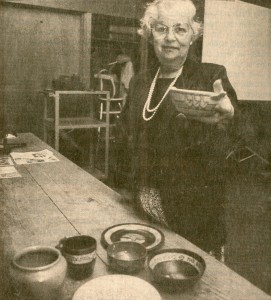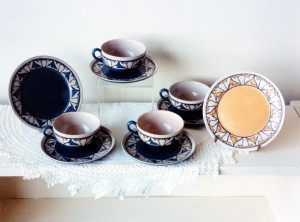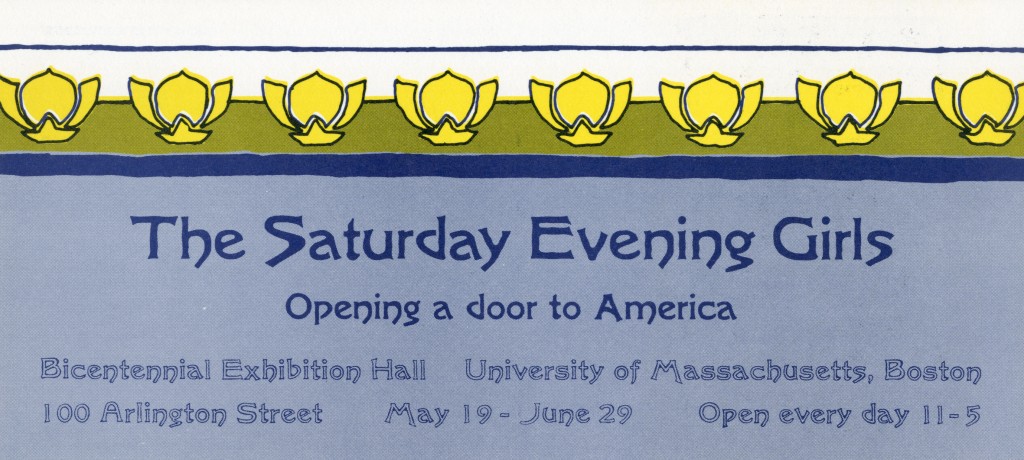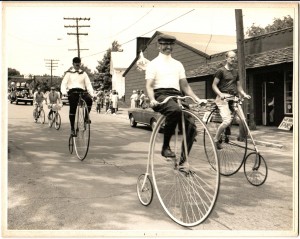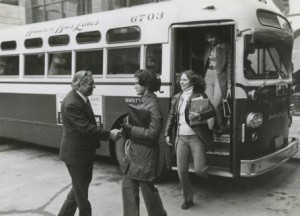 To celebrate Archives Month, I will be posting highlights from our collections throughout October, beginning with this first post about one of our most popular collections, the Thompson Island collection. I hope that this will turn into a regular series. To learn more about Archives Month, visit the Society of American Archivists website.
To celebrate Archives Month, I will be posting highlights from our collections throughout October, beginning with this first post about one of our most popular collections, the Thompson Island collection. I hope that this will turn into a regular series. To learn more about Archives Month, visit the Society of American Archivists website.
As the reference archivist in University Archives and Special Collections at UMass Boston, I get to work with a wide range of interesting historic materials and want to share some of what I find in the archives. One of our most heavily-used collections is the Thompson Island collection. One of 34 islands in Boston Harbor, Thompson Island has a long history of education and social welfare. The island has been home to several schools since the early nineteenth century: the Boston Farm School Society (1833-1835), the Boston Asylum and Farm School (1835-1907), the Farm and Trades School (1907-1956), and Thompson’s Academy (1956-1975). Learn more about the records of these schools and the history of education on Thompson Island here. The island is currently home to the Thompson Island Outward Bound Education Center, which was established in 1988.
In addition to human residents, Thompson Island has seen a number of animal inhabitants over the years, from dogs and cats to various livestock. Browse the gallery below for a selection of historic critter-related photographs from our Thompson Island collection.
View the finding aid for the Thompson Island collection here, digitized photographs here, and digitized copies of the Thompson Island Beacon, a student-produced newspaper, here.
For questions about this collection or to schedule a research appointment, please contact library.archives@umb.edu or 617-287-5469.
University Archives & Special Collections in the Joseph P. Healey Library at UMass Boston collects materials related to the university’s history, as well as materials that reflect the institution’s urban mission and strong support of community service, notably in collections of records of urban planning, social welfare, social action, alternative movements, community organizations, and local history related to neighboring communities.
University Archives & Special Collections welcomes inquiries from individuals, organizations, and businesses interested in donating materials of an archival nature that that fit within our collecting policy. These include manuscripts, documents, organizational archives, collections of photographs, unique publications, and audio and video media. For more information about donating to University Archives & Special Collections, click here or email library.archives@umb.edu.




![SC-0040_13-38_pig-undated Pig, undated [circa 1913-1942]](https://i0.wp.com/blogs.umb.edu/archives/files/2015/10/SC-0040_13-38_pig-undated-1pkrjp9.jpg?w=179&h=179&crop=1&ssl=1)
![SC-0040_13-38_goat-undated Goat, undated [circa 1913-1942]](https://i0.wp.com/blogs.umb.edu/archives/files/2015/10/SC-0040_13-38_goat-undated-sj18ua.jpg?w=179&h=179&crop=1&ssl=1)
![SC-0040_13-38_cat-undated Cat, undated [circa 1913-1942]](https://i0.wp.com/blogs.umb.edu/archives/files/2015/10/SC-0040_13-38_cat-undated-2gc8q86.jpg?w=179&h=179&crop=1&ssl=1)
![SC-0040_13-38_geese-undated Two geese, undated [circa 1913-1942]](https://i0.wp.com/blogs.umb.edu/archives/files/2015/10/SC-0040_13-38_geese-undated-17mch9q.jpg?w=179&h=179&crop=1&ssl=1)
![SC-0040_13-38_cow-and-calf-undated Cow and calf, undated [circa 1913-1942]](https://i0.wp.com/blogs.umb.edu/archives/files/2015/10/SC-0040_13-38_cow-and-calf-undated-2bljnat.jpg?w=179&h=179&crop=1&ssl=1)
